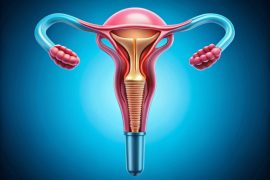Taking control of your reproductive health is an important step in planning your future. Whether you’re looking to delay pregnancy, plan the timing of your family, or simply make informed choices, understanding contraception can help you navigate this journey. This guide will provide you with essential insights about contraception, making it easier for you to decide what works best for you.
Why Consider Contraception?
Contraception isn’t just about avoiding unwanted pregnancies. It helps individuals and couples to make decisions that align with their lifestyles and goals. Some reasons to consider contraception include:
- Family planning: Decide when and if you want to have children.
- Health benefits: Certain methods can regulate menstrual cycles and reduce health risks like anaemia or ovarian cysts.
- Peace of mind: Knowing you have a plan in place can reduce anxiety about unplanned pregnancies.
- Preventing sexually transmitted infections (STIs): Some methods, like condoms, provide protection against STIs while also preventing pregnancy.
Types of Contraceptives: How They Work and What to Consider
Contraceptives come in various forms, each catering to different needs and preferences. Here’s an overview of the main types of contraceptives:
Barrier Methods:
- Includes condoms, diaphragms, and cervical caps
- Works by preventing sperm from reaching the egg
- Easy to use and offers protection against STIs (condoms only)
Hormonal Methods:
- Includes pills, patches, injections, and implants
- Alters hormone levels to prevent ovulation or fertilization
- It can also help regulate periods and reduce menstrual pain
Intrauterine Devices (IUDs):
- Small devices are inserted into the uterus
- Available as hormonal or non-hormonal (copper-based)
- Long-lasting and highly effective
Natural Methods:
- Includes fertility awareness and withdrawal
- Requires tracking your menstrual cycle to avoid intercourse on fertile days.
- Demands discipline and regular monitoring
Permanent Methods:
- Includes sterilization procedures for both men and women
- Ideal for those who are certain about not wanting children in the future
How Effective Are Contraceptives?
Effectiveness varies by method and how consistently it’s used. Here’s a general idea:
- Highly effective: IUDs, implants, and sterilization have over 99% effectiveness
- Moderately effective: Pills, patches, and injections are about 91%-94% effective with typical use
- Less effective: Barrier methods and natural methods are around 70%-88% effective with typical use
Remember, human error (like missing a pill or not using a condom correctly) can reduce effectiveness. Following instructions and staying consistent are key.
Choosing the Right Contraceptive: Factors to Consider
Selecting the right contraception depends on various personal factors:
- Your health: Certain medical conditions may make some methods unsuitable. For example, hormonal methods might not be ideal for people with specific health issues.
- Lifestyle: Consider your schedule, preferences, and habits. If remembering daily pills is a challenge, a long-term option like an IUD might be better.
- Future Plans: If you’re planning to have children soon, temporary methods are ideal. For long-term prevention, permanent methods could be an option.
- Protection from STIs: If STI prevention is a priority, condoms are a must, either alone or in combination with another method.
- Side effects: Every method has potential side effects. It’s important to weigh the pros and cons to find what suits your body and lifestyle
Addressing Common Concerns and Misconceptions
There are many myths surrounding contraception, and it’s crucial to separate fact from fiction:
- Myth: Contraceptives cause infertility.
- Fact: Most contraceptives are reversible, and fertility returns once you stop using them.
- Myth: Only women need to think about contraception.
- Fact: Men have options, too, like condoms and vasectomy. Contraception is a shared responsibility.
- Myth: Natural methods are unreliable.
- Fact: When practised correctly, natural methods can be effective but require dedication and proper education.
When to Seek Medical Advice
It’s always a good idea to consult a healthcare professional before choosing a contraceptive method. Seek advice if:
- You’re unsure which method is suitable for your health and lifestyle.
- You experience side effects like irregular bleeding, severe pain, or discomfort.
- You’ve tried a method and found it ineffective or unsuitable.
- You’re considering permanent options and want to understand the implications.
A doctor can help you navigate your choices and provide personalized recommendations based on your needs.
Conclusion
Understanding contraception is a vital step toward taking charge of your reproductive health. With so many options available, there’s something to suit every individual’s preference and lifestyle. By learning about the different methods, their effectiveness, and how they align with your goals, you can make informed decisions with confidence. Remember, it’s okay to seek medical advice or explore multiple methods until you find the one that works best for you.
References:





Comments are closed.